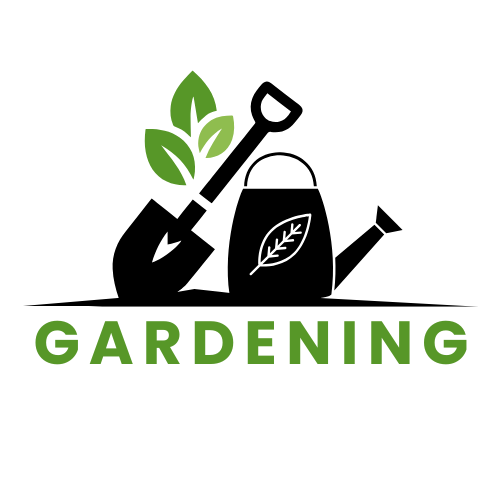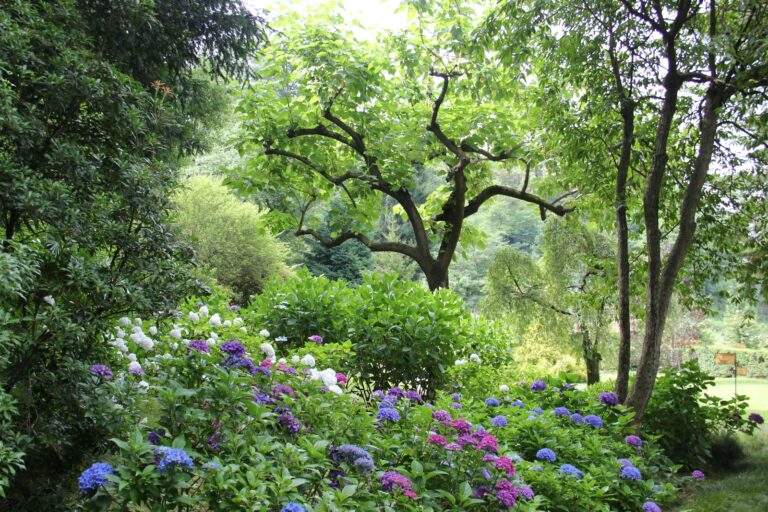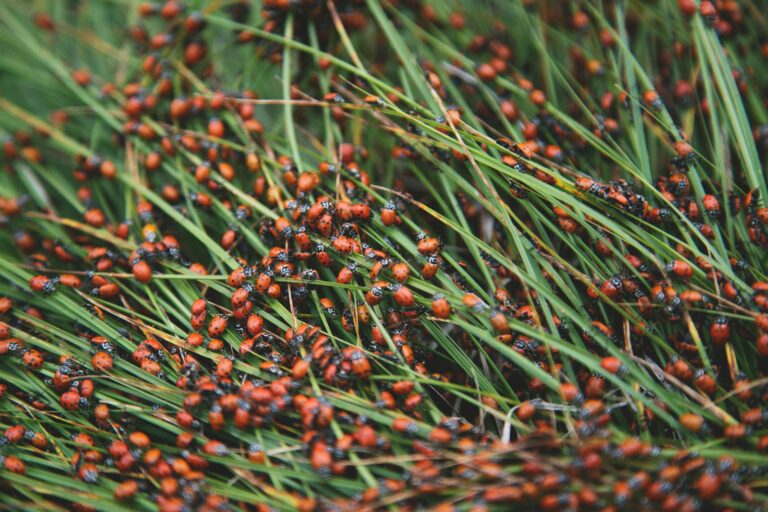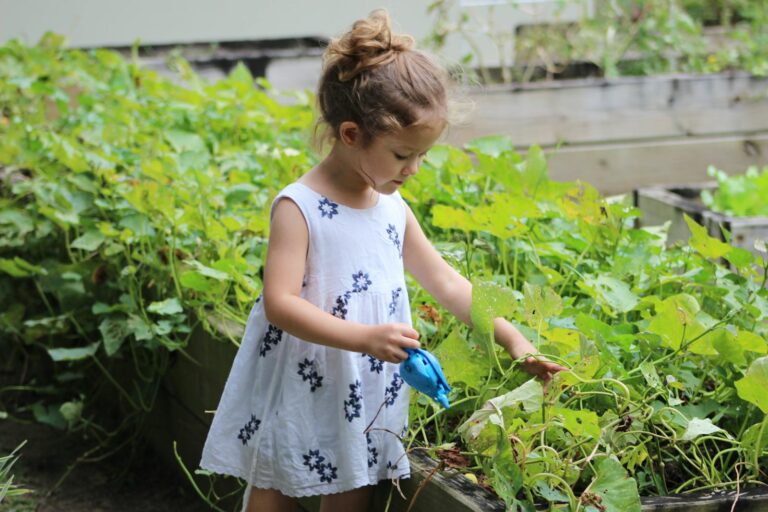The Zen of Weeding: What Pulling Weeds Teaches About Letting Go
Gardening isn’t just about tending to plants and creating a beautiful space—it’s also a mirror reflecting the dynamics of our own lives. In particular, the simple act of pulling weeds can teach us profound lessons about letting go, being mindful, and finding peace amid life’s chaos. In this article, we’ll explore how the practice of weeding can be seen as a meditative exercise, teaching us to detach from what no longer serves us and to nurture what truly matters.
A Garden and a Life: Finding Parallels
When you look at any garden, the scene is filled with more than just thriving plants. You also see unwanted growth—those persistent weeds that seem to find a way into every corner. While they may seem like a nuisance, weeds actually serve an important role: reminding us that growth in life is messy and continuous. Like weeds, some thoughts and feelings can creep into our minds without permission, disturbing our peace and cluttering our inner landscape.
In the world of gardening, weeding means more than just plucking out the unwanted; it involves cultivating a mindful sense of attention and care. Every tug, every motion of the hand, becomes a physical manifestation of an inner decision to let go of what hinders progress. As you pull a weed, you are not only removing an intruder, you’re creating space for the growth of the flowers and fruits you truly cherish.
A Moment of Mindfulness
Imagine you’re kneeling in your garden on an early morning, dew still glistening on the leaves, and the air quietly crisp. In that moment, you focus on the weed in front of you. With gentle movements, you grasp it, observe its intricate details the texture of its leaves, the stubbornness of its roots and then pull it out. This simple act of mindfulness mirrors a powerful psychological practice known as “letting go.” Just as you decide to uproot something that doesn’t belong, you learn that you can let go of negative thoughts and attachments that clutter your mind.
The Benefits of Weeding: More Than Just Physical Exercise

Pulling weeds is not merely a chore—it’s a small but potent form of therapy. Several studies have underscored the benefits of gardening and spending time in nature for mental health. For instance, research published by the American Journal of Public Health (2017) suggests that spending time outdoors can significantly lower stress levels and improve overall well-being. Similarly, data from the National Recreation and Park Association (2020) indicates that activities like gardening contribute to reduced symptoms of depression and anxiety.
Here are some ways in which weeding enriches our lives:
- Physical Health: Gardening is a low-impact exercise that can improve flexibility, increase strength, and promote cardiovascular health. Regular physical activity, as recommended by the World Health Organization (WHO, 2020), is crucial for long-term health and well-being.
- Mental Clarity: Engaging in repetitive, mindful tasks like weeding allows your brain to take a break from overwhelming thoughts or worries. This often leads to a sense of clarity and calm.
- Connection With Nature: Studies have shown that spending time in nature not only enhances mood but also improves cognitive functions (Nature, 2019). Feeling connected to the natural cycle of growth and decay can help you understand that change is inevitable and often necessary for new growth.
- Stress Relief: The act of pulling weeds, focusing solely on the here and now, forces you to step away from stressors and to process the present moment with greater calm.
Letting Go: What Weeds Teach Us
When we talk about “letting go,” many people think about emotional baggage or past mistakes. The beauty of weeding is that it presents a metaphor for this process—one that is both tangible and relatable.
1. A Lesson in Patience
Not all weeds pull out easily. Some are deeply entrenched, their roots twisted and complex. Sometimes, you may pull one weed, only to find that its roots were interwoven with others, or that despite your efforts, a little piece remains. In life, letting go is often a gradual process. You may think you’ve moved on from a past hurt or an attachment, only to find that remnants of it still linger. The key is to be patient and compassionate with yourself. Just as in a garden, sometimes the process of fully eradicating a weed takes time and persistence.
2. Identifying What Truly Matters
Weeds remind us that some parts of our environment—both physical and emotional—can crowd out the things that are truly important. Think about a garden that is overrun with weeds: even the loveliest of flowers can struggle to thrive under the weight of competition. In our lives, we may sometimes harbor thoughts, habits, or relationships that do not contribute to our growth. By removing these elements, we create space for positive influences. A life cluttered with negative emotions or toxic relationships leaves little room for joy, creativity, or personal growth.
3. Embracing Impermanence
A garden is never static; it is in a constant state of flux. No matter how diligently you care for it, nature will always introduce new weeds, just as life will continue to bring new challenges and changes. Recognizing this can be liberating. Embracing the impermanent nature of both your garden and your inner life can teach you resilience. Rather than fighting against the inevitable changes, you learn to flow with them, understanding that the process of clearing away the old is necessary for the new to flourish.
4. The Courage to Act
It takes a certain amount of courage to decide that it’s time to clear out what’s unwanted—even if that is just a stubborn weed. Similarly, in our lives, making the decision to let go of old habits, outdated beliefs, or harmful relationships requires bravery. Acknowledging that something is no longer beneficial to you is the first step toward making a change. And once you take that courageous act, you open up a path toward renewal and growth.
A Closer Look: Personal Experiences and Real-World Examples
Let me share a small case study that illustrates these ideas. Consider the story of Karen, an avid gardener in suburban Ohio. A few years ago, Karen’s garden was a source of both pride and frustration. She loved the vibrant displays of flowers and the bountiful vegetables, but no matter how much time she dedicated to her garden, weeds would always find their way in. For years, she saw these unwanted intruders as nuisances, blighting her otherwise beautiful garden.
One spring, feeling particularly overwhelmed by life’s challenges, Karen decided to approach her garden with a new mindset. Instead of viewing weeding as a chore, she embraced it as a metaphor for her own need to declutter her emotional life. Each weed she pulled out became a symbol of something she was ready to let go—be it self-doubt, lingering resentments, or outdated beliefs about what she could or couldn’t achieve. As she worked, she reflected on the impermanence of both her garden and her life. Over time, she noticed that her outlook had shifted. The garden blossomed not only because she was removing the physical weeds but also because she was cultivating a more peaceful and accepting mindset.
This example isn’t just heartwarming—it’s backed by research. In a study published by the Journal of Environmental Psychology (2018), researchers found that engaging in gardening activities, including weeding, can help individuals manage stress and foster a sense of accomplishment. These small acts of intentional care, repeated consistently over time, have measurable positive effects on mental health.
Simple Techniques to Cultivate Letting Go in Your Daily Life
You may be wondering how to integrate the wisdom of weeding into your everyday routines. Here are some practical tips, inspired by the garden and the act of weeding, that you can try:
- Set Intentions Before You Begin:
Take a moment before starting any task—be it gardening, cleaning, or even dealing with an emotional challenge—to set a clear intention. It might be as simple as “I am creating space for growth” or “I choose to let go of what no longer serves me.” This mental preparation can transform a mundane activity into a meaningful ritual. - Practice Mindful Awareness:
Pay attention to the physical sensations and emotions that arise as you work. Notice the texture of the soil, the resistance of a stubborn weed, or even the frustration when things don’t go perfectly. Acknowledge these feelings, and remember that each moment is a step toward inner clarity. This practice of mindfulness isn’t just for the garden—it’s something you can apply to any part of your life. - Celebrate Small Victories:
Pulling weeds is often a series of small, seemingly insignificant actions. Yet each weed removed is a victory over chaos. Celebrate these moments! Recognizing progress, however small, builds a habit of positive reinforcement. Over time, you’ll notice that these small acts accumulate into a larger, more noticeable transformation. - Reflect on the Process:
After your weeding session, take a few minutes to sit back and reflect. What emotions came up? Did you feel lighter or more focused afterward? Journaling your thoughts can deepen your understanding and reinforce the lessons you’ve learned. You might write down something like: “Today, I let go of what was weighing me down, both in my garden and in my heart.”
This simple practice can help transform abstract emotions into a concrete record of growth. - Share Your Journey:
Sometimes, the act of sharing your experiences can offer additional clarity and support. Whether you discuss your gardening adventures with a friend or join an online community of garden enthusiasts, sharing these insights often opens up conversations about life, challenges, and the art of letting go.
Weeding as a Practice of Acceptance
Beyond the practical aspects, weeding can help you accept that life is full of imperfections. Not every weed or negative thought can be eliminated immediately or permanently. Sometimes, even after a thorough weeding session, a new sprout appears. This is not a sign of failure; rather, it is an invitation to re-engage with the process and to trust in your ability to adapt.
To put it another way, acceptance means recognizing that both gardens and minds will always have some level of disorder. It’s in our nature to evolve, to accept that changes, setbacks, or unwanted growth will come and go. Embracing this impermanence, as many spiritual traditions suggest, can lead to a greater sense of peace and resilience. When you accept that life is a continuous cycle of growth and renewal, you can face challenges with a calm certainty that you have the tools to manage whatever comes your way.
The Role of Data and Research in Understanding Nature’s Lessons
It might seem surprising, but even in a task as familiar as weeding, science and research offer insights that deepen the experience. For example, the benefits of gardening for mental health have been widely studied. According to a report by the American Horticultural Therapy Association (2020), engaging with nature through gardening reduces stress and improves mood through the release of endorphins—the body’s natural “feel-good” chemicals. Similar findings by Psychology Today (2019) emphasize that activities like weeding can help break the cycle of negative thinking by providing a structured, sensory-rich experience that diverts the mind from everyday stresses.
Moreover, environmental studies have shown that well-maintained gardens play a role in urban ecosystems by supporting biodiversity and reducing pollution. When citizens participate in gardening, they not only tend to their own mental health but also contribute to a larger environmental effort. This connection to nature reminds us that our actions, no matter how small, can have ripple effects that enhance the well-being of our communities.
Transforming Weeding Into a Life Philosophy

The act of weeding can be seen as a daily practice of transformation. Think of every weed pulled as a symbol of shedding an outdated belief or releasing a harmful pattern. This isn’t just a metaphor—it’s a philosophy that many find liberating when applied to both life and growth.
Imagine a scenario where you are facing a difficult situation at work or in a relationship. You might feel overwhelmed by lingering issues and negative patterns. By paralleling this with the process of weeding, you can approach the problem piece by piece. Here’s a simple framework inspired by weeding that you might try:
- Identify the “Weed”:
Take a moment to identify what exactly is bothering you. Is it a recurring negative thought? Is it an unsupportive relationship? Just as you would carefully pick out a specific weed, define the exact issue you wish to address. - Assess the Impact:
Consider how this “weed” is affecting your life. Is it choking the opportunities for better experiences? Reflecting on its impact can motivate you to take action. - Take Action:
Once you’re clear on what needs to go, decide on the steps you’re going to take. This might mean having a difficult conversation, changing a habit, or simply acknowledging the presence of a negative thought and deciding not to give it power. - Maintain the Ground:
Just as a garden requires regular care, personal growth is an ongoing process. Regular self-reflection and mindfulness help ensure that the new, positive habits you cultivate remain strong and continue to thrive.
This framework isn’t intended to be a strict step-by-step guide but rather an invitation to view challenges as opportunities for growth. Just like a garden that changes with each season, your journey toward inner peace and personal development is an evolving process.
Real-Life Inspirations: Stories From the Garden
Let’s step back and consider a few more stories that illustrate the deeper lessons weeding can offer.
The Story of Mark
Mark, a software engineer in San Francisco, was known for his long hours and constant pursuit of perfection at work. However, this pursuit started to seep into his personal life, leaving him stressed and unable to fully relax. Mark took up gardening as a weekend hobby and soon discovered that the time he spent tending his small vegetable garden was a perfect antidote to the stress of his day-to-day life. As he learned to pull out weeds with care and intentionality, he began applying the same philosophy at work. He learned to delegate tasks, prioritize what truly mattered, and let go of the unrealistic expectation of perfection. Over time, Mark found that his productivity improved, and he experienced a greater sense of balance between his work and personal life. His garden became a metaphor for his inner world: by carefully managing the “weeds” of stress and overcommitment, he allowed more space for growth, creativity, and joy.
The Journey of Lena
Lena, a retired teacher from a small town in Oregon, found solace in her backyard garden after years of surviving a difficult divorce. When she started gardening, Lena was initially frustrated by the invaders that threatened her freshly planted flowers. However, as the months passed, she began to see each weed as a reminder of her own resilience. Every time she removed an unwanted plant, she told herself, “I am making room for something new.” Over time, Lena’s garden transformed into a vibrant canvas of colorful blooms and greenery—a space that symbolized the beauty of renewal. Lena’s experience highlights how even the most challenging circumstances can be reframed as opportunities for personal reinvention. Her story is a testament to the power of embracing the cyclical nature of growth and renewal, both in the garden and in life.
Integrating the Zen of Weeding Into Modern Life
Modern life is full of distractions—social media, constant connectivity, and an ever-growing to-do list that can leave us feeling overwhelmed. In the midst of this digital noise, the quiet, tactile experience of weeding is a much-needed antidote. Integrating this practice into your routine doesn’t mean you have to be a professional gardener, but it does mean finding small, mindful moments in your day to clear away the clutter, both mentally and physically.
Practical Tips for Urban Weeders
- Create a Micro-Garden:
Even if you live in an apartment or a small space, you can start with a few potted plants or a windowsill herb garden. The act of caring for them and periodically clearing out any overgrown or unhealthy leaves can provide a similar sense of mindfulness. - Schedule “Mindful Moments”:
Dedicate a specific time each day or week for activities that help you disconnect from routine pressures—whether it’s weeding a small planter, meditating, or simply taking a walk in nature. - Reflect on Your Progress:
Use a simple journal to note down your reflections after each mindful activity. Write about what you cleared away (emotionally or physically) and what room that opened up for new growth. Over time, these reflections can serve as a powerful reminder of your personal development journey.
The Global Movement of Gardening
It’s interesting to note that urban gardening has become a global movement. In cities across the world—from New York to Berlin—more and more people are turning to gardening as a way to reclaim a sense of peace and control over their lives. According to a report by the American Community Gardening Association (2021), community gardens not only improve local food security but also foster community spirit and mental well-being. This phenomenon underscores how even small acts of nurturing, like pulling weeds, resonate with universal human needs for order, connection, and renewal.
The Science Behind Letting Go
Understanding the connection between weeding and letting go isn’t just poetic—it also has scientific underpinnings. Researchers have found that engaging in hands-on, repetitive tasks like gardening triggers the release of brain chemicals such as dopamine and serotonin. These chemicals are crucial for mood regulation and are often imbalanced in conditions like anxiety and depression. A study published by the Journal of Positive Psychology (2018) detailed how activities that involve physical movement and mindfulness can significantly improve mental health by reducing cortisol levels, the hormone associated with stress.
Moreover, psychological research into mindfulness practices shows that intentionally focusing on the present moment helps reduce rumination about the past and anxiety about the future. This supports the idea that the simple, focused act of weeding can serve as a therapeutic practice—a way of training the mind to let go of unhelpful patterns and embrace a more relaxed state of being.
Final Thoughts: A Journey of Continuous Renewal
The act of pulling weeds is a powerful metaphor for letting go. It teaches us that in both the garden and in life, we must continually clear out what no longer serves us to make room for new growth and renewal. The process is neither quick nor always smooth—it demands patience, persistence, and a willingness to face the parts of ourselves that we would rather ignore.
In the stillness of the garden, as you bend over to remove a weed, you are engaging in an act of courage. You are telling yourself that you are willing to let go of the clutter, both externally in your environment and internally in your mind. And with every weed pulled, you are reminded that life is a constant process of growth, decay, and rebirth.
The Zen of weeding is not simply about maintaining a beautiful garden; it’s about cultivating a beautiful life. It encourages you to embrace imperfection, to recognize that setbacks and challenges are natural parts of growth, and to trust in your ability to rise above them. When you let go of the weeds—both literal and metaphorical—you open yourself up to the possibility of something truly wonderful taking root.
As we wrap up our exploration of this topic, consider taking a moment next time you’re in your garden—whether that’s a sprawling backyard or a small indoor plant collection. Kneel down, dig in your hands, and slowly pull out the weeds. As you do so, reflect on the areas of your life that might be cluttered with old habits, doubts, or negative thoughts. Recognize that by letting go of what isn’t essential, you make way for what is truly nourishing.
In our fast-paced modern world, it is easy to get caught up in the chaos—so much of life is about accumulation: accumulating information, accumulating possessions, accumulating stress. Yet, there is wisdom in the simplicity of weeding out what is excess. It is a practice in minimalism, an embrace of the idea that less is often more. By focusing on what is essential and discarding the rest, you allow beauty and meaning to flourish in the most unexpected places.
Bringing It All Together
The philosophy behind weeding teaches us about the nature of change, the importance of patience, and the strength found in letting go. Whether you’re dealing with a thriving garden or navigating the complexities of daily life, the lessons remain the same:
- Recognize and accept that not everything is permanent.
Just as a garden is continually changing, life is in constant flux. Accepting this truth can lead to greater inner peace and resilience in the face of adversity. - Embrace mindful practices.
Integrate moments of mindfulness—like weeding—into your daily routine. These moments of focused attention act as a reset button for your mind, offering clarity and calm. - Be patient with yourself.
Change takes time, and let go of the past is rarely instantaneous. Celebrate each small step forward and acknowledge your progress, no matter how incremental it may seem. - Trust in the process of renewal.
Every removal of a weed is a small victory, paving the way for new growth. Believe in your ability to adapt and flourish, even when setbacks occur.
As you implement these ideas, remember that both gardening and personal growth are journeys defined by continual learning. Every season brings new challenges and opportunities alike, and every weed pulled is a step toward a more balanced, fulfilling life.
In Conclusion
The Zen of Weeding offers us a gentle yet powerful lesson: that letting go is an essential part of living fully. It teaches us that by removing what does not nourish us, we create space for positive growth, creativity, and joy. Just as in a garden where pulling a weed leads to healthier, more vibrant plants, letting go of negativity, outdated beliefs, or harmful habits paves the way for a more joyful and resilient life.
Next time you find yourself frustrated by the persistence of unwanted thoughts or patterns, imagine yourself in a garden. Visualize what you need to remove, and then take action—whether that means seeking help, changing a routine, or simply acknowledging and releasing old feelings. In doing so, you are practicing the art of letting go, a lesson taught daily by the humble act of weeding.
I invite you, as a friend and fellow seeker of growth, to consider how the quiet, deliberate actions in your life can lead to lasting inner transformation. Embrace the wisdom of the garden, and let it remind you that change, while challenging at times, always carries the promise of new beginnings.
May your days be filled with gentle moments of reflection, mindful action, and the ever-renewing hope that comes from knowing you have the power to cultivate a life that reflects your truest values. Happy weeding, and here’s to a flourishing life both inside and out.





